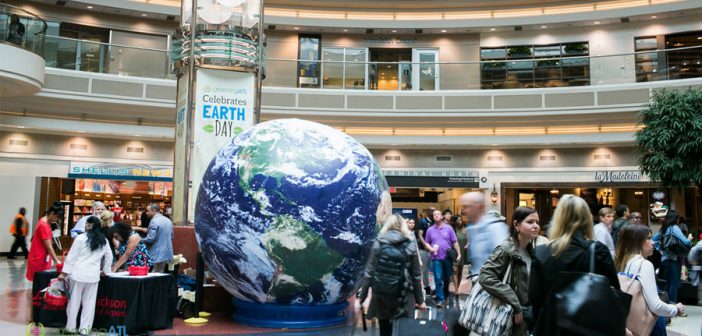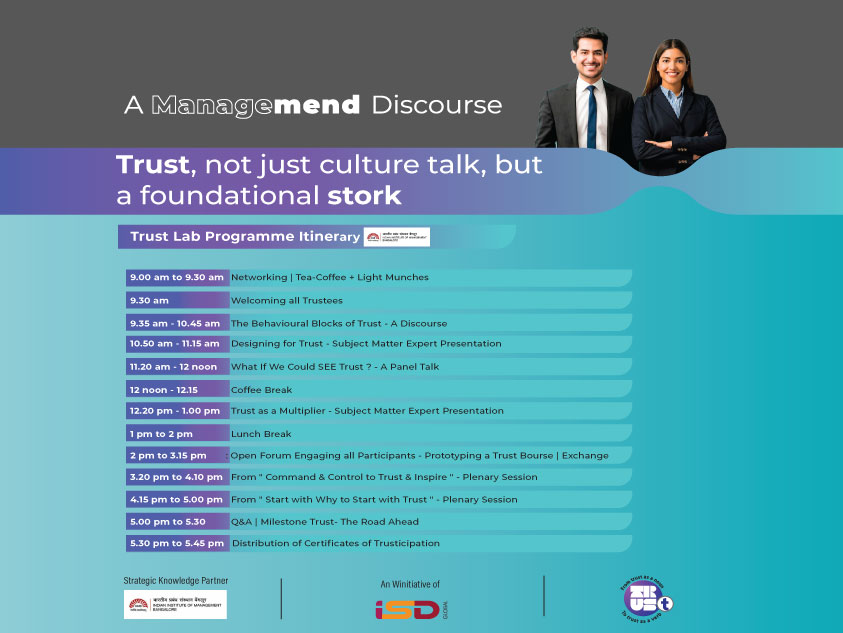Airlines are big perpetrators of plastic pollution in the aviation industry, but airports are part of the equation as well, and their attention is being pulled in many directions. The airport is not only concerned with the plastic waste that comes off of planes, but the terminal is filled with concessionaires selling food, beverage, and retail to travelers in plastic packaging — travelers who may or may not care to recycle properly, or at all.
Hartsfield-Jackson Atlanta International Airport has an especially large waste management operation. The airport was ranked the world’s busiest by Airports Council International, ahead of Beijing and Dubai, serving 107 million passengers in 2018. Atlanta’s airport is on track to serve 110 million people in 2019, according to Liza Milagro, resilience and sustainability manager, averaging 275,000 passengers daily.
With nearly 300,000 people catching flights in a single day, that amounts to a lot of refuse in Atlanta.
The airport previously planned to achieve zero landfill waste by 2020, but it’s now behind schedule and recognizes how much work remains, according to Milagro. And much of that work is to be done with airlines.
In a hub like Atlanta, the plastic used by airlines far outweighs travelers’ contribution to the problem, said Milagro. “The highest amount of plastic is coming from the airlines. They need to consider switching their materials.”
Both Delta and Southwest operate heavily out of Atlanta and have been open to dialog on improving processes, she said. “The conversations are being had. What airlines do a great job at right now is taking advantage of low-hanging fruit like soda cans … Most of the airlines do pretty well with their cans.”
“We’re behind, by a lot,” said Milagro about the airport achieving zero waste. “Our primary delays have come with educating leadership and soft and hard infrastructure,” leadership referring both to the airport and key stakeholders. She specified that the airport needs to revisit its policies, equipment purchases, and public-private partnerships. Milagro said there are very few places to compost in the state of Georgia, which led to the creation of the airport’s own recycling and composting facility, Green Acres.
The terminal generates about 30,000 tons of waste per year, plastic comprising about one-third, or 9,000 tons. “Our programs aren’t worth anything if you can’t measure them or track them,” said Milagro. “How can you commit to something when you don’t know what you have?”
Regarding education on waste management, Milagro stressed the importance of viewing plastic waste as a commodity and a valuable part of a circular economy. For example, Atlanta’s airport, aquarium, and stadium collaborated to create clothing out of plastic bottles.
CONCESSIONAIRES AND TRAVELERS HAVE A RESPONSIBILITY TOO
Vendors of food, beverage, and retail in the terminal contribute to plastic waste, and some is also collected from travelers at security checkpoints — Milagro seeks to work on all of these pieces in tandem.
San Francisco Airport is ahead of the curve in terms of using design to encourage travelers to recycle, according to design firm Gensler. “The passenger education efforts, especially at SFO, have really helped. It goes beyond building design to graphic design and change management,” said Regional Design Resilience Co-Leader Jim Stanislaski.
When new recycling bins were being tested in San Francisco in 2016, on average 54 percent of trash was either thrown into recycling or composting, compared to preexisting bins, in which only 25 percent of trash was diverted from waste, according to a Gensler study. Travelers’ ability to sort materials accurately remained a challenge even with the test bins.
Gensler also worked with San Francisco on its concessionaire policies to encourage compostable utensils and reduce single-use plastics. “Most clients do want to encourage recycling, but SFO takes it to another level in terms of making things compulsory,” said Stanislaski. “There’s a big difference between just providing some recycling bins and actually writing requirements into leases.”
Atlanta’s concessionaires are similarly required to use compostable serviceware, which is incorporated into their leases. Noncompliance first results in a warning, then a notice of violation, then the lease is dropped, said Milagro. The airport incorporates additional sustainability items into its RFPs, including green cleaning supplies and avoidance of styrofoam as well as hard-to-recycle No. 5 plastics.
Both Atlanta and San Francisco have large international airports, and that makes a difference in terms of influencing concessionaires’ use of plastics. “Concessionaires and airlines choose airports, not the other way around,” said Stanislaski, noting that big airports in desirable markets have more leverage to require their tenants to abide by sustainable rules.
Hudson Group’s largest location is in the Atlanta airport — the company operates nationwide with food and beverage, retail, and duty-free. Hudson says that it uses compostable silverware at airports that mandate it, but the company declined an interview and declined to comment by email.
As far as the airport building itself, Stanislaski said that longevity is among plastic’s chief benefits for flooring, roofing, insulation, and cable jacketing. However, “We need to take the long view and think about end-of-life with some of these products,” he said. When plastic burns, it releases toxic chemicals, and Stanislaski said there should be more transparency about building materials.
At the end of the day, for Milagro, there is a more urgent issue than plastic waste: recoverable edible food that can feed people in the community. “Plastic waste is important, but there is another stream that I believe is just as important and offers an immediate connection for people. [Recoverable edible food] is not a scarcity issue, it’s a logistics issue.”
–
This article first appeared in www.skift.com
Seeking to build and grow your brand using the force of consumer insight, strategic foresight, creative disruption and technology prowess? Talk to us at +9714 3867728 or mail: info@groupisd.com or visit www.groupisd.com





